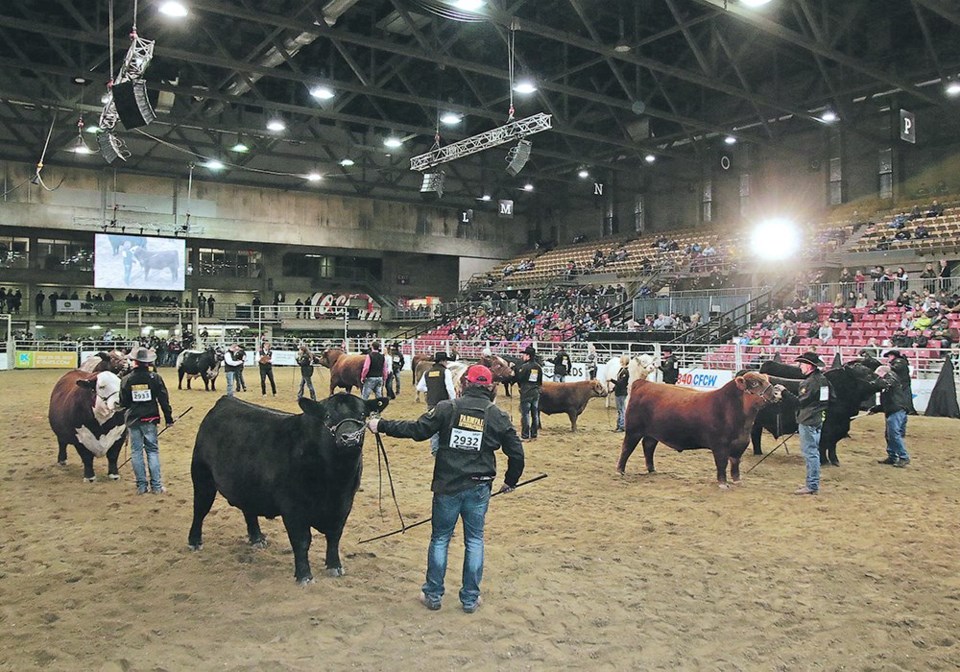WESTERN PRODUCER — Organizers of rodeos, shows and agriculture society events are anticipating a successful summer after two years of pandemic-related postponements.
“There’s a lot of optimism out there for this summer and everybody’s hoping they can get back to doing what they do and inviting people out to events,” said Glen Duck, executive director of the Saskatchewan Association of Agricultural Societies and Exhibitions.
“We’re in the event business, we’re in the gathering business and that’s what’s really been hurt the last couple of years.”
Christina Franc, executive director of the Canadian Association of Fairs and Exhibitions (CAFE), said restrictions particularly affected large gatherings.
“With the Prairies, it’s primarily ag societies that we see out there that have been living in hibernation for the past two years because, obviously, their events or programming tend to be mass gatherings.”
CAFE is a national charitable organization for fairs, exhibitions and ag societies.
However, organizers are still faced with two significant hurdles: lack of volunteers and infrastructure challenges.
Duck said volunteers are the backbone of ag societies, and they could not successfully operate without them.
Franc agreed.
“The volunteer pool is an aging demographic that’s not necessarily keen to come back. These organizations are almost always entirely volunteer run, so that’s devastating for the ag societies as they look to find new volunteers,” she said.
Many aging buildings and facilities, unused for two years, now need attention.
“The infrastructure was built 100 years ago. They built things well back then, but regardless, there’s some upkeep and maintenance and some renovations that need to happen that are incredibly expensive to do, especially after two years of no events, no programming,” said Franc.
“Ag societies and the volunteers involved are a resilient bunch if ever I saw one. They’re so dedicated and they have this in their blood, this passion.
“It’s good to see because they’re going to put up a fight and they’re going to make it through, but it’s a struggle right now. Hopefully we can get back to a good summer so we can start rebuilding,” she added.
According to CAFE Break, the association’s newsletter, new federal funding could become available.
The Tourism and Hospitality Recovery Program provides support through wage and rent subsidies with a rate of up to 75 percent through the winter.
Those not eligible for that program may qualify for the Hardest-Hit Business Recovery Program, which provides support through wage and rent subsidies to other businesses that have faced deep losses, with a subsidy rate of up to 50 percent.
As a sector, Franc said CAFE is eligible, but fairs and ag societies need to meet revenue decline criteria.
“That’s an opportunity for some of our members if they have staff or if they have facility expenses or things like that.
“That being said, the thresholds there are a little high to meet as we look into the details. And the other thing is it doesn’t address the seasonal business model, which has been a real challenge for us because with a lot of our organizations they primarily, if not only, operate in the summer,” said Franc.
The AgriCommunication Program is also available to fairs and exhibitions. It’s a three-year federal program with up to $8 million earmarked to support activities that build public trust and educate people about agriculture and sustainable initiatives.
“The caveat there is you need national reach,” said Franc. “So, for a lot of the little guys, that’s not really helpful. The CAFE organization has put in an application to do something nationally that will hopefully benefit all the fairs, exhibition ag societies big and small.”
“The recovery dollars we’ve seen federally have been more focused on the businesses rather than volunteer organizations or seasonal businesses, so the majority haven’t been able to take advantage of it.”
Provincially funded programs have helped some ag societies during the past two years, said Marlene Baskerville, executive director of the Manitoba Association of Agricultural Societies.
“There’s an educational grant and an infrastructure grant. It certainly does not cover all the costs, everybody knows that, but there are some dollars there. We’d love more, but we take what we can get,” she said.
Franc said some fairs and ag societies may not survive.
“Really the biggest thing is getting the volunteers and getting people engaged. Yes, money helps, but it’s about the manpower and we know there’s a labour shortage. That’s not just for paid labour, that’s for volunteer labour too, and so that’s going to be the issue that’s knocking on a lot of organizations’ doors.”

